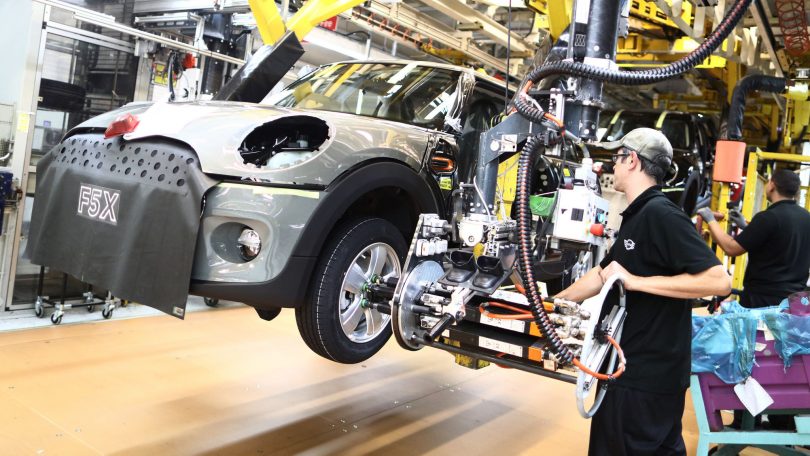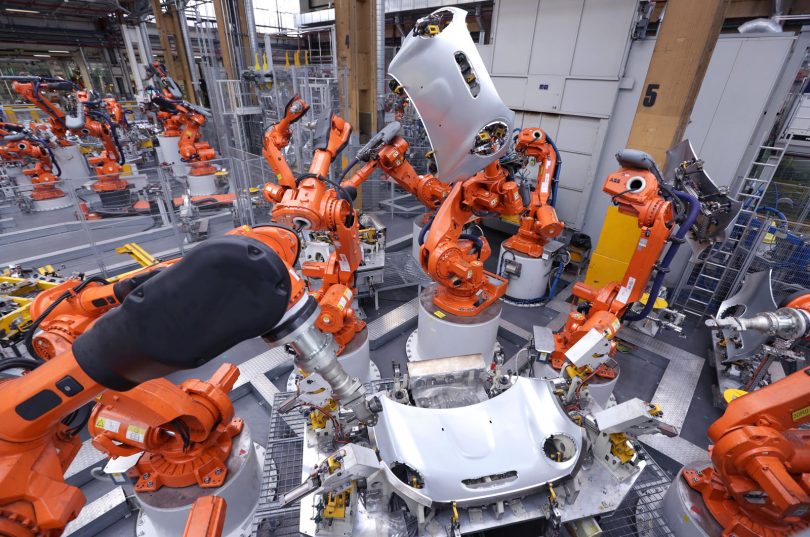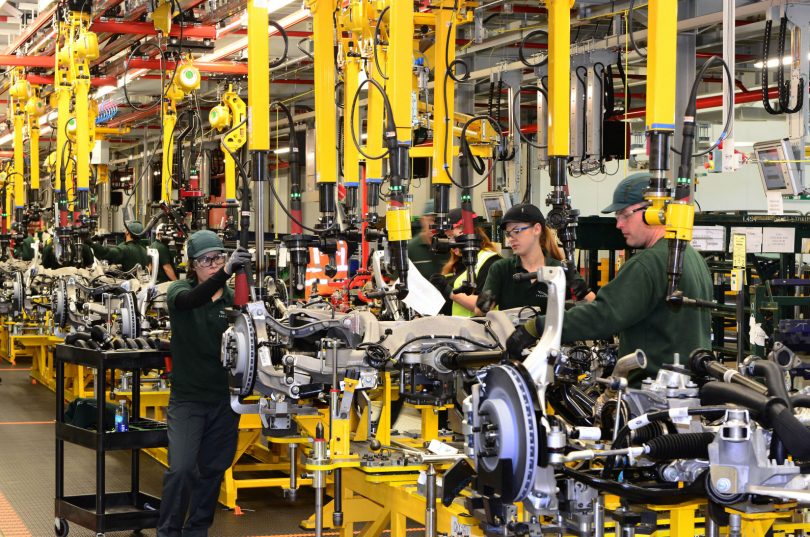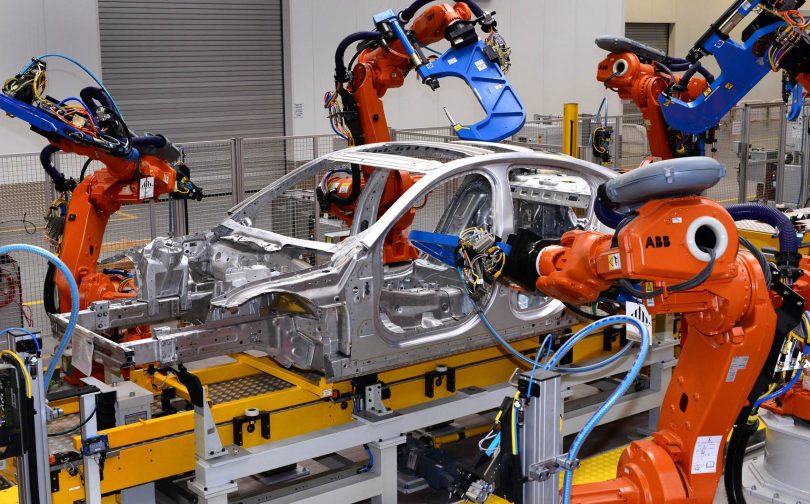 |
The automotive industry is a very important part of the United Kingdom’s economy, producing high-value goods and created skilled jobs. The manufacturing of cars has been one aspect of the sector where green business practices had been absent. Now, it is a completely different story. The UK’s car fleet is becoming green, as eco-friendly entrepreneurs such as Elon Musk have shaken up the motor industry. Many parts of the auto industry are influenced. Companies are pushing forward the competition through the ecological and sustainable path, counting on electrification and hybrid technologies, among other things. This article discusses sustainability and innovation in the automotive sector.
Green and sustainable initiatives in automotive production
Sustainability is at the heart of the UK automotive industry. Multiple businesses have realized that producing green cars is good for the planet. Success, as far as it is concerned, is the result of hard work.

Img source: opentext.com
- UK car production
British-built vehicles are in demand in emerging markets like China, Japan, Canada, and the US. Overseas demand dominates production, accounting for more than 80% of car output. Toyota will make a new Suzuki hybrid at the UK plant in Derbyshire, which will boost the motor industry amidst Brexit uncertainty. The automobile is based on Toyota Corolla’s model. The UK factory will be 85 percent hybrid. The corporation expects the proportion of automobiles to grow front year to year. Toyota incorporates recyclable materials into car production. Automobile components like batteries and steering systems are harvested for the reuse and recycle the remaining materials, such as aluminum, plastic, copper, brass, and plastic.
- Impressive environmental performance
The ongoing effort to reduce the resources used and cut costs has resulted in worthwhile achievements. Manufacturers, fuel companies, and scientists are now working to improve energy consumption. The energy usage per vehicle dropped below the 2MW level. Four car manufacturers, namely Toyota, Honda, Leyland Trucks, and Bentley have external energy management systems. Toyota is the first ones in Europe to start manufacturing cars with various means of propulsion.
Attention needs to be paid to the fact that Britain is struggling for a green future and has many initiatives when it comes to protecting the Earth. The remediation project carried out at West Hythe in Kent is a good example. Remediation work was carried out to prepare for residential development. In restoration projects, this includes importing inert fill materials and making the ground suitable for development, as the specialists at Sheerness Recycling explain. As the name suggests, inert materials have minimal and almost no chemical or biological activity when they are present in the environment. Creative industries, business, and politics are striving to create a sustainable future.

Img source: autocar.co.uk
- Plans to decarbonize and digitalize the manufacturing processes
Cutting-edge technologies, such as InTEGReL and Northern Powergrid’s Customer-Led Distribution System, will be introduced to decarbonize vehicle production. Sales of zero-emissions cars will completely decarbonize transportation. It seems that the future will not be gasoline internal combustion engines. Automobile production is not about huge plants and long assembly lines. In the future, processes will be digitized. Everything will be connected via IoT. By digitizing the connected supply chain, it is possible to drive costs down, engage with the consumer, and, last but not least, use data for the better.
Brits’ Taste for Electric and hybrid cars
There are more than 200,000 vehicles in the United Kingdom. Taking into consideration the fact that most electric cars and vans are not eligible for the grant schemes, this number is impressive. It shows that Britain is keeping up with modern nations, making the transition to electric vehicles. People, as far as they are concerned, cannot wait to ditch the internal combustion engine and get behind the wheel of a Tesla. A great number of UK consumers have already placed their orders for the Tesla Model 3, which is set to be delivered in June. This vehicle holds better than any other one on the road. The value of Tesla lies in the way it defines transport. The EV features improved performance and significant new features.

Img source: autocar.co.uk/
Gases such as carbon monoxide pollute the environment. Thankfully, hybrid cars rely on electric motors, so they burn fewer fuels. Britain’s consumers are interested in the following cars:
- Toyota Corolla Hybrid
- BMW i3
- VW Golf GTE
- Kia Niro Hybrid
- Mitsubishi Outlander
There is no way of knowing whether hybrid cars will dominate the market, but one thing is certain. The sale of standard petrol and diesel cars will decline by 2040. Together with electric cars, hybrid cars are key elements of the shift towards greener vehicles.
What will the future look like?
The environmental issue has become an important influence on the car industry. This is largely driven by the need to have eco-friendly vehicles on the road. Green manufacturing is blossoming all over Britain. To be more precise, the motor industry has made considerable strides to reduce its environmental impact throughout the entire life cycle. Motor vehicles are now much more efficient, clean, safe, and, most importantly, more recyclable. The British public has chosen a new future out of the European Union, but they have not neglected to safeguard their automotive interests. Sustainability is the way forward for global goals.

Img source: autocar.co.uk/
At present, we can witness the ecological modernization of the motor industry. It is normal to want to know what the future holds? Several measures have been identified, which will have positive outcomes for the auto industry. The plan of action concerns the reduction of the greenhouse has emissions, the inclusion of automobiles other than passenger cars, and encouraging the deployment of non-fossil and fuels that have a lower carbon intensity in vehicles.
The progress demonstrated in a difficult year for the UK auto industry brings about more hope. There will be challenges in the future, yet the motor industry will be able to deal with them in an efficient manner. United Kingdom’s car industry is committed to monitoring, evaluating, and enhancing its economic, environmental, and social performance. The bottom line is that the UK industry will continue to remain competitive, ground-breaking, and favor development.




